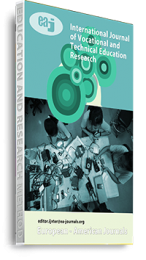The paper aimed to investigate the wood artisanal education and training designed for the youth of the Sekondi-Takoradi Metropolis and the prevailing job prospects vis-a-vis the modern technologies, tools, equipment and materials required in the (artisanal) training and manufacturing of world-class wood products. The paper found that the wood market is available to wood artisans and wood products in the Metropolis. The quantitative design approach was applied as the work was based on information obtained from wood artisans and professionals, connoisseurs, curators and wood sellers. The primary information was acquired through interaction, observation and field survey, while secondary information was obtained from literary sources. The purposive sampling technique adopted the analytical method to analyse the data.The results showed that woodcraft artisans in the Metropolis lacked the requisite education and training in modern machinery and technological know-how needed to meet the International Standard Order (ISO) and the increasing taste of the prospective woodcraft market.The paper concludes that Sekondi-Takoradi will be threatened with employable woodcraft knowledge, skills and competencies required to meet the Metropolis’s woodcraft market and compete favourably with their Western and Asian counterparts.
Citation: Samuel Adentwi Bentum, Frederick Narkwa Anderson and Solomon Obuobisa Ayeh (2022) Wood Artisan Training and Job Prospects in Sekondi Takoradi -The Hope, The Helplessness, And The Hatred, International Journal of Vocational and Technical Education Research, Vol.8, No.2 pp.9-29
Keywords: Education, Technology, Training, artisan, wood

